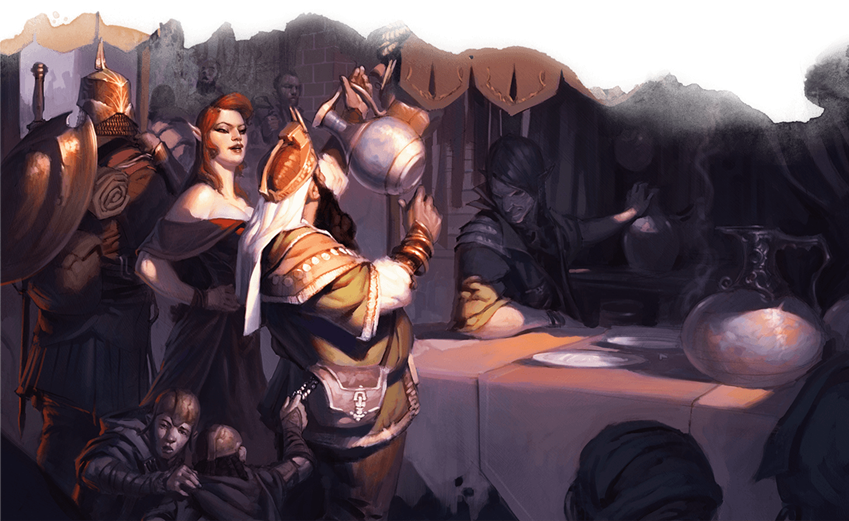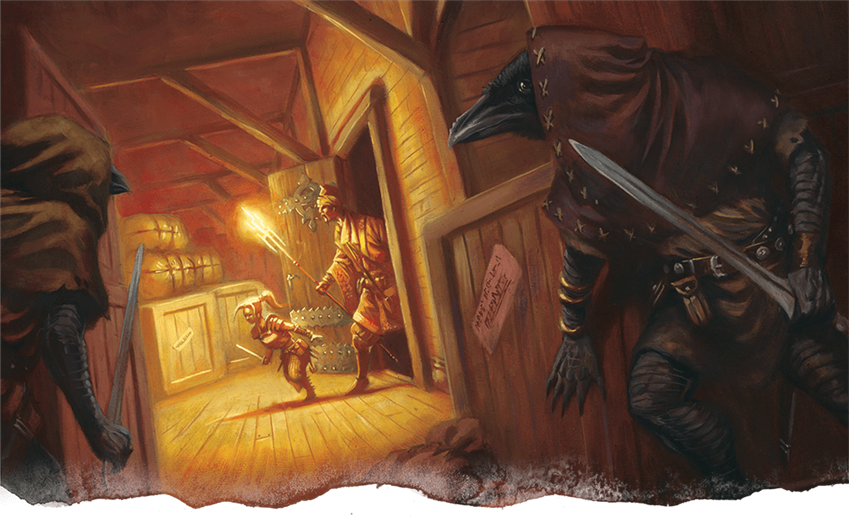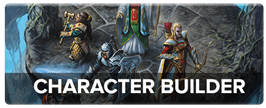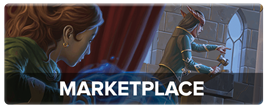House rules can make your D&D games more epic. If your game features lots of ability checks, and your characters use their skill and tool proficiencies all over the place, this new Talented Checks house rule can speed up your game, make your characters feel more like competent heroes, and make it easier to run mystery and social intrigue adventures. Let’s talk about Talented Checks!

Talented Checks
This house rule is short and sweet. Let’s start by stating it plainly here, and then we’ll dive into the nuances, interactions, and side effects this rule has as it echoes throughout the rest of the D&D rules. Here’s the house rule in its entirety:
If you’re proficient with a skill or tool, you automatically succeed on ability checks using that proficiency if the DC of that check is equal to or lower than 10 + your modifiers that apply to that check.
This is a fairly simple house rule, but it can have a massive impact on how your D&D game runs. It’s well-suited to social intrigue or mystery stories (like Waterdeep: Dragon Heist or adventures like The Styes in Ghosts of Saltmarsh), or any other adventure in which characters are expected to make a lot of checks.
This house rule even has uses in dungeon-crawling tales like Waterdeep: Dungeon of the Mad Mage, since it makes each class’s identity in the dungeon even more distinct. If a fighter has proficiency in Athletics, giving them the ability to automatically succeed on easy Strength (Athletics) checks lets their player feel like a competent action hero—which is the core of their class. Likewise, rogues can confidently pick locks that aren’t too beyond their skill, and wizards can comfortably succeed at Intelligence (Arcana) checks to decipher magical secrets, making them feel like all that studying they did in Candlekeep was worth something in the long run.

Passive Checks vs. Talented Checks
Most D&D players are at least passingly familiar with passive checks—particularly the most common type of passive check, a passive Wisdom (Perception) check. Your passive Wisdom (Perception) score is listed on your character sheet, and that value is equal to 10 + all modifiers that normally apply to the check, such as your Wisdom modifier and your proficiency bonus (if you’re proficient in the Perception skill).
Talented checks use the same formula as passive checks for determining success and failure, but they work differently. Here are some distinctions to keep in mind if you’re using this house rule.
Passive checks are always on; talented checks aren’t. When you enter a room in a dungeon, you automatically succeed at any Wisdom (Perception) checks that have a DC equal to or lower than your passive Wisdom (Perception) score. Even though a talented check can automatically succeed, you still need to actively choose to make an ability check.
You need to be proficient to make a talented check. Anyone can make a passive check. For instance, you still have a passive Wisdom (Perception) score even if you aren’t proficient in the Perception skill. Your passive score in that case is equal to 10 + your Wisdom modifier. Talented checks, however, can only be made by people who are proficient with the skill or tool being used. This helps protect the usefulness of characters that have invested resources into mastering a certain type of skill or tool.
Not all checks are passive checks, but any check can be talented. The rules of D&D aren’t clear on what checks can or can’t be passive. By the rules, any combination of ability scores and proficiencies can be made “passive,” but the only ones that are called out specifically by the rules are passive Wisdom (Perception) and passive Intelligence (Investigation)—the latter only shows up in the [feat]Observant[/feat] in the Player’s Handbook. That’s why those two passive scores are the only ones that appear on the D&D Beyond Character Sheet. If you want to make any other skill passive, you need to talk with your players (or ask your DM) and make it clear that’s what’s happening.
That’s not the case with talented checks. If you use this house rule, you’re making a clear statement to your players that if you’re proficient with a skill or tool, you can simply choose to succeed on easy checks using those proficiencies.

What about Reliable Talent?
Reliable Talent is a rogue class feature that allows you to “treat a d20 roll of 9 or lower as a 10” whenever you “make an ability check that lets you add your proficiency bonus.” This house rule is essentially expanding Reliable Talent to all characters, but with less dice rolling. This is only a problem if your game reaches 11th level and you have a rogue in your party; they’ll need to receive another mechanical bonus to replace the one that this house rule has essentially given to everyone.
A fine replacement for Reliable Talent is the bard’s Jack of All Trades class feature, which allows you to add half your proficiency bonus to any check that you wouldn’t otherwise add your proficiency bonus to. Even though its function is different, replacing Reliable Talent with Jack of All Trades as the rogue’s 11th-level class feature fulfils a similar role of improving their odds of success when making ability checks.
What about Temporary Proficiency?
Some class features, like the Knowledge Domain cleric’s Channel Divinity: Knowledge of the Ages feature, temporarily grants you proficiency with a skill or tool. Given a strict reading of the rules, this house rule allows you to make a talented check as long as you are proficient with a skill or tool; there’s no stipulation that you must always be proficient, just that you must be proficient when you make the check. This house rule certainly makes Knowledge Domain clerics better, but I don’t think it makes them particularly overpowered.
As with any house rule, it’s incumbent upon you and your table to work with your players and Dungeon Master to modify the rules to suit your needs.

What about Xanathar’s Guide to Everything?
Xanathar’s Guide to Everything gives Dungeon Masters and players a great deal of specific guidance on how to use tool proficiencies in fun and useful ways. Some of the fun of using these tool proficiencies relies on the tension of the dice; will you succeed at forging a signature with your calligrapher’s tools, even with its high DC? This house rule doesn’t make it more likely for characters to succeed at incredibly hard checks, but it does make it a guarantee that they’ll succeed at the easier checks, since they have to be proficient with a particular tool in order to attempt some of these specialized checks in the first place. I don’t think that this causes any problems, unless you really enjoy the uncertainty involved in possibly failing easy checks.
Xanathar’s also gives guidance on making downtime activities exciting. Some of these downtime activities involve making ability checks to determine how well you succeed at a certain activity. For instance, committing crimes while in town requires you to choose a DC, and then make several checks against that DC. If your characters just want a little bit of easy cash, it could become boring if they choose a DC that they can automatically beat using a talented check. Removing the risk of failure could make checks like this rote and mundane.
On the other hand, it’s up to you to decide if this is a bad thing or not. Your party may have a little more gold than usual, but what’s wrong with that? If one of your character is a master thief who just wants a reliable cash flow, let them live out the fantasy of pulling off a string of flawless low-profile capers week after week. But you’ve seen enough heist movies to know they’ll eventually want more, right? Thieves in movies, plays, and TV shows have massive egos and poor impulse control; they’re always looking for something bigger, badder, and shinier.
If this house rule causes crime (or whatever your players’ go-to downtime activity is) to become routine, try upping the ante yourself. Drop hints about the “Grand Diamond of Cormyr” being put on display in the Waterdeep Metropolitan Museum for a tenday only in one month’s time. This isn’t just a standard crime; this is a crime with DCs of 30 across the board. The characters are going to need to do a lot of legwork to rig these checks in their favor, and talented checks won’t help them here.
Do you have any questions about this house rule? How would you use it in your D&D games? And do you have any house rules of your own? Let us know in the comments!
Special thanks to @ThinkingDM for his thread about passive skills, which inspired me to revise and expand my original draft of this house rule.
Create A Brand-New Adventurer Acquire New Powers and Adventures Browse All Your D&D Content
 James Haeck is the lead writer for D&D Beyond, the co-author of Waterdeep: Dragon Heist, Baldur's Gate: Descent into Avernus, and the Critical Role Explorer's Guide to Wildemount, a member of the Guild Adepts, and a freelance writer for Wizards of the Coast, the D&D Adventurers League, and other RPG companies. He lives in Seattle, Washington with his fiancée Hannah and their animal companions Mei and Marzipan. You can find him wasting time on Twitter at @jamesjhaeck.
James Haeck is the lead writer for D&D Beyond, the co-author of Waterdeep: Dragon Heist, Baldur's Gate: Descent into Avernus, and the Critical Role Explorer's Guide to Wildemount, a member of the Guild Adepts, and a freelance writer for Wizards of the Coast, the D&D Adventurers League, and other RPG companies. He lives in Seattle, Washington with his fiancée Hannah and their animal companions Mei and Marzipan. You can find him wasting time on Twitter at @jamesjhaeck.











-
View User Profile
-
Send Message
Posted Aug 30, 2020I'd be reticent to make it this good as this is an 11th level Rogue ability.
Removing uncertainty from the game is, IMO, not necessarily a good idea, either, particularly for stress situations like combat (remember that Athletics is used to attack when Pushing or Grappling, and it or Acrobatics is used to escape a Grapple) or a chase scene. I get how the fickle D20 can make for some kind of ridiculous situations, such as having to have the weak Wizard open a door when the Fighter fails, but no uncertainty can really end up becoming quite boring.
I totally agree about getting rid of unnecessary rolls, but in that case I think reviving Take 10 makes the most sense. When you're not in a stress situation, you can Take 10 on proficient skills and perform about as well as your typical performance is. That way the character with +9 in Athletics can pretty routinely lift heavy weights without much trouble but can't just throw foes all over the place in combat without making a roll.
No uncertainty in stress situations is, however, a problem. This gets particularly true with Reliable Talent, which, if I were redesigning the game, I'd nuke from orbit and replace with a Short Rest ability that was more limited in use but really cool when it applied. Maybe something like: "You may replace the roll of any ability check with which you have proficiency with a 20. No roll is made in this case. You may not use this ability again until a Short or Long Rest." I'd probably have it appear earlier than 11th level and then gain another use later on, kind of like the Fighter's Indomitable. That way the rogue can feel cool from time to time but doesn't get to run the tables on whatever they're proficient at over and over.
-
View User Profile
-
Send Message
Posted Aug 30, 2020Another way to sweeten Reliable Talent a bit, would be to just change it to be a little better.
Instead of treating any roll of 9 or less as if it were a 10 .... let them treat any roll of 14 of less as if it were a 15. Or, to write it differently: they get to auto-succeed if the DC is equal to or less than fifteen (15) plus their modifier(s).
-
View User Profile
-
Send Message
Posted Aug 30, 2020There is a bit of a difference: Reliable Talent works with contested checks (i.e. Stealth vs Perception; or grapple) as well...
-
View User Profile
-
Send Message
Posted Aug 31, 2020Then don't take the second wording, just go with "treat any roll of 14 or less as though it were a 15" wording.
-
View User Profile
-
Send Message
Posted Aug 31, 2020So the idea here is to effectively remove the concept of "You should succeed, but you might fail" which I can't say I'm a fan of. Still an interesting idea that points to a larger issue, which is pointless skill checks. Personally, what for scenarios like this, is have poor roles still succeed at the core concept, but with some kind of penalty: i.e. you picked the lock, but it took a while and now the guards have rotated shifts; you jumped the gap but stepped on some unsteady ground and the ledge behind you collapsed making it harder for the rest of the party; etc.
-
View User Profile
-
Send Message
Posted Aug 31, 2020I like the 5+mod, because those are the ones where you are very likely to succeed. If the DC is 10+mod, you only succeed half the time, so it doesn’t seem similar to “auto-succeed”. If you can climb that cliff half of your tries, you are going to fall the other half, and this rule kinda makes that boring. But 5+mod is a great idea.
-
View User Profile
-
Send Message
Posted Aug 31, 2020It is very similar mechanically to taking 10 or taking 20. but it is important to state that it takes TIME. Time should be a valuable commodity to the party and they should understand the amount that they have to sacrifice in order to take 10 or 20. I don't see any mention of it taking time in the base post. This isn't a bad thing necessarily but is certainly not the way I would implement something like this.
-
View User Profile
-
Send Message
Posted Aug 31, 2020I like this rule, but I do not want to use it all the time. I still like the randomness of rolls. However, I think I might implement the rule as a use for inspiration. I get tired of inspiration rolls being two low numbers so many times. It feels very uninspiring. If you could use inspiration to use your proficient skills to automatically succeed, I think that would make players more likely to want to earn and use inspiration.
-
View User Profile
-
Send Message
Posted Aug 31, 2020I know a few other RPGs that use this rule, and it seems to work pretty well.
Edit: I also read about “blaming the circumstances”. For example: Instead of having the Rogue with +7 thieves tools fail to pick the DC 10 lock, have their lock picks break. Or maybe the lock is too old and rusted to pick. Perhaps the fighter failed to make that jump because there was a sudden earthquake, ETC.
-
View User Profile
-
Send Message
Posted Aug 31, 2020What do you mean pretty soon? Like you would not be able to stop yourself?
-
View User Profile
-
Send Message
Posted Aug 31, 2020That's a good idea. Far too often Inspiration seems to crap out right when you need it. Having it be an "unnatural 20" (so no crit) might be kind of nice. You don't get to roll at all, you just get a 20 instead. This might let a character out of some kind of save lock in the event they're stuck with something they're weak at or succeed when they absolutely have to. It could also be a good way to represent some character abilities, essentially giving them a shadow point of Inspiration per long rest (or whatever) that's only applicable to a defined set of tasks.
-
View User Profile
-
Send Message
Posted Sep 1, 2020Something similar existed in 3.5, commonly referred to as taking a 10. You could only do it in situations where there wasn't any immediate time pressure, and only for low DC checks.
-
View User Profile
-
Send Message
Posted Sep 1, 2020As per (often misinterpreted or ignored) rules, the only times a "natural 20" counts as crit are attack rolls and death saving throws, not during skill/ability checks (or "normal" saving throws) anyway...
-
View User Profile
-
Send Message
Posted Sep 1, 2020@Edem How to interpret a natural 20 I would think is up to the DM running the game. If they decide that it provides automatic success on whatever is being attempted, that is in their prerogative to do so despite what the rules may be as written.
-
View User Profile
-
Send Message
Posted Sep 1, 2020i think that if the roll is contested you wouldnt be able to consider it as auto-pass.
-
View User Profile
-
Send Message
Posted Sep 1, 2020I'm going to have to float this by my table. We don't have any rogues, so I don't see this stepping on anyone's toes at the moment. If we did, I'd probably say you get two "Talented" Skills that this would apply to. Great idea to play with, thank you!
-
View User Profile
-
Send Message
Posted Sep 2, 2020I really like this... and would give my players the option to use it, but BEFORE knowing the DC (at least explicitly... they could have had a rough estimation through context)
As for the subject of the article, i usually treat a failed check as part of the story than just a failure : it's not that you're bad at lock picking/investigating it's just that the lock was fused/there was nothing to find. the binarity of pass/fail already so strong in D&D would only be reinforced.
But as a GM, i do reserve the right to not have the player make the check if their skill is high enough anywasy.
-
View User Profile
-
Send Message
Posted Sep 3, 2020Yup, "Taking 10" and "Taking 20" were rules that were trashed in 5E. Taking 20 was an excellent rule that allowed a player to auto succeed and auto fail at the same time because it implied that enough rolls were done to get a 20 and a 1. So it could only be used when there was lots of time and no consequence of failure. It adds a grounded "real" feeling to exploration.
Taking 10 on the other hand is good for some checks (like ones with no consequence for failure), but it runs the risk of taking the fun out of failure.
-
View User Profile
-
Send Message
Posted Sep 4, 2020I called it an "unnatural twenty" just to indicate that it wouldn't trigger a special effect of a natural 20. Most rolls have no special effect, of course.
-
View User Profile
-
Send Message
Posted Sep 14, 2020WOULD EVERYBODY STOP SPELLING ROGUE AS ROUGE